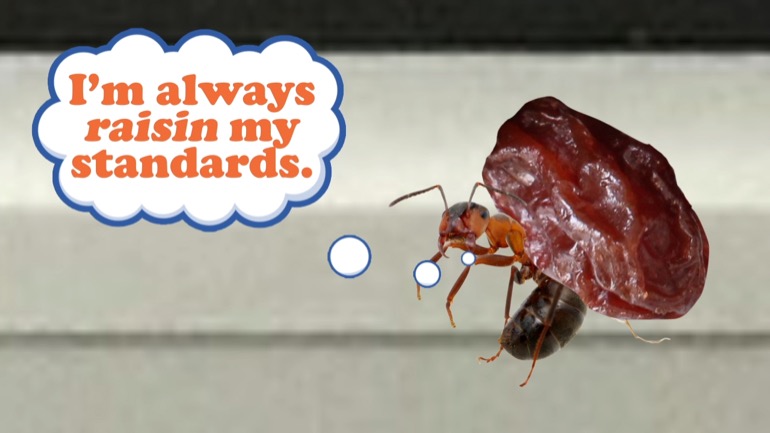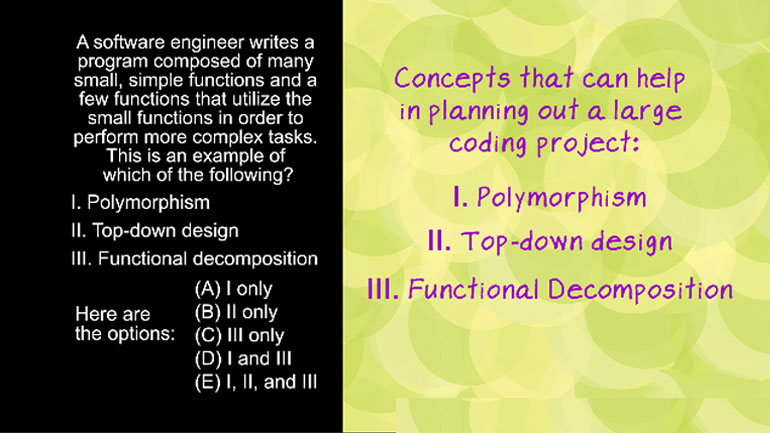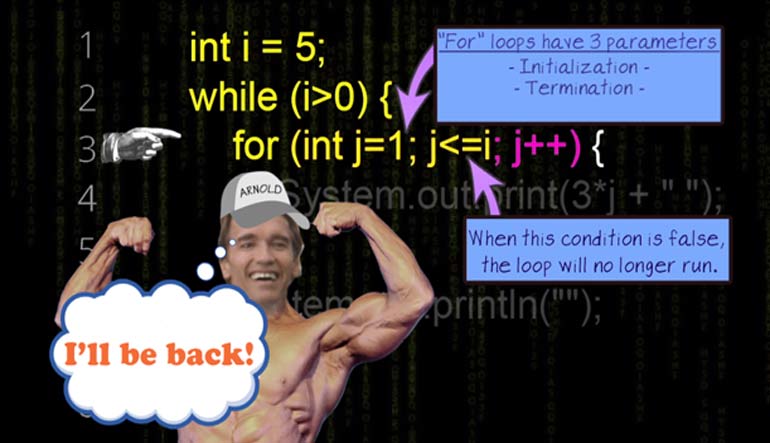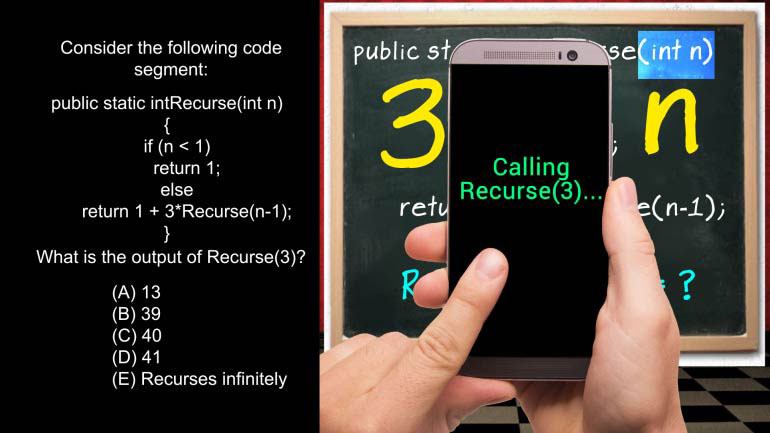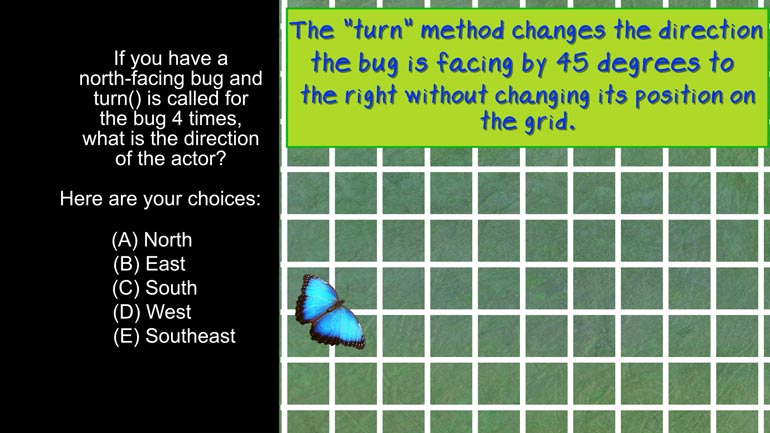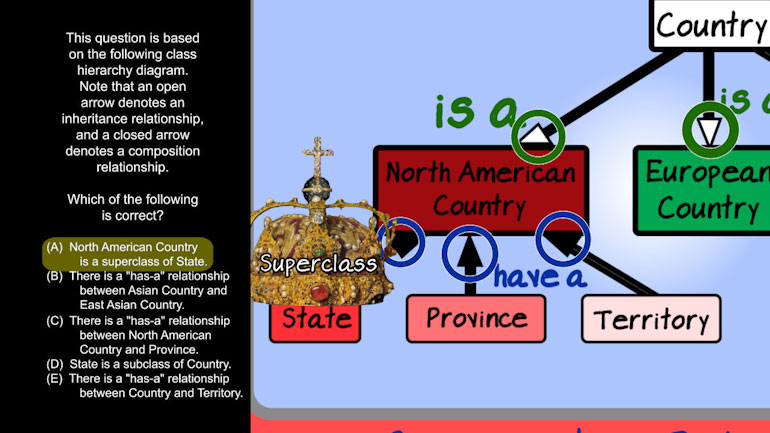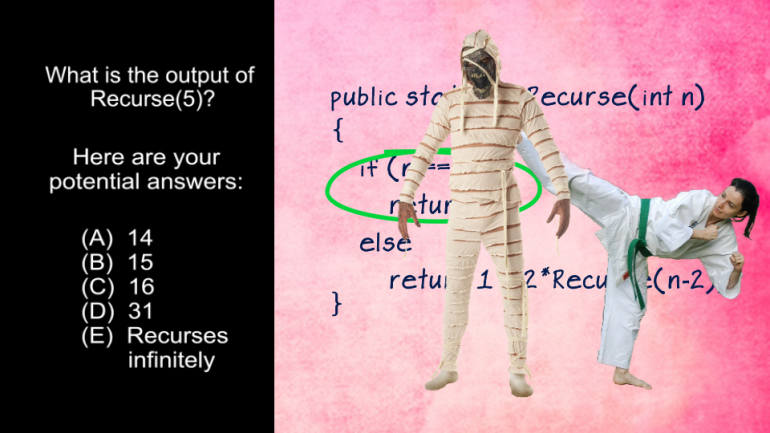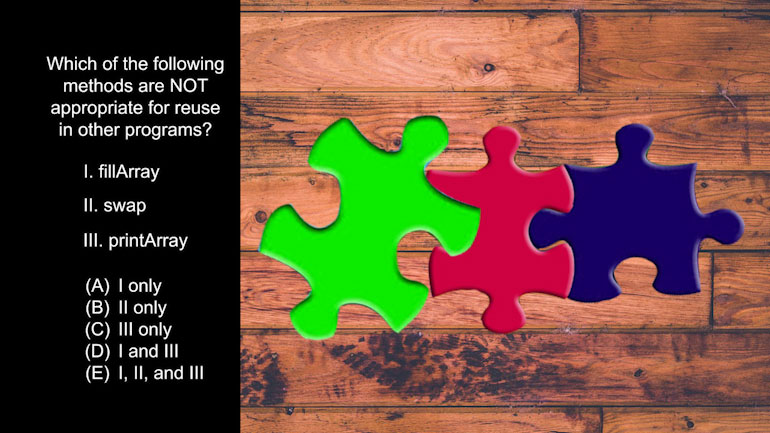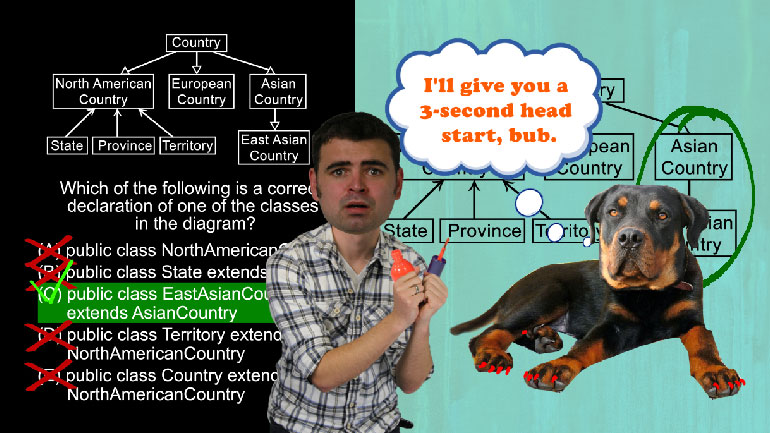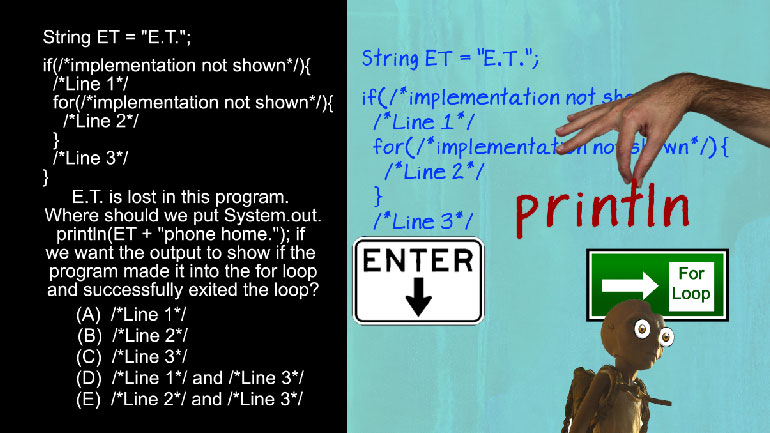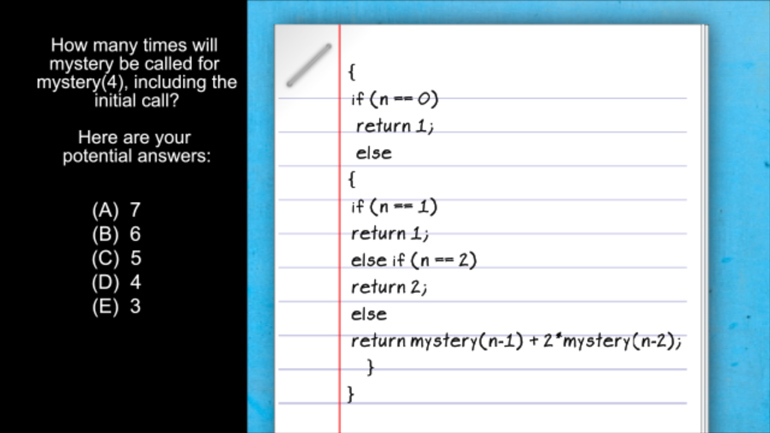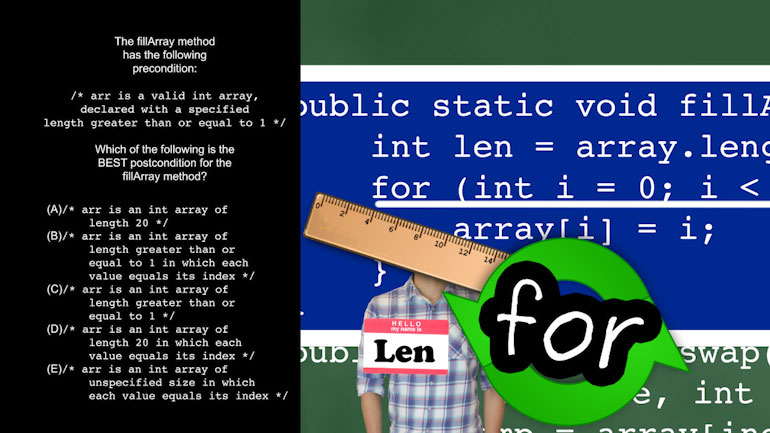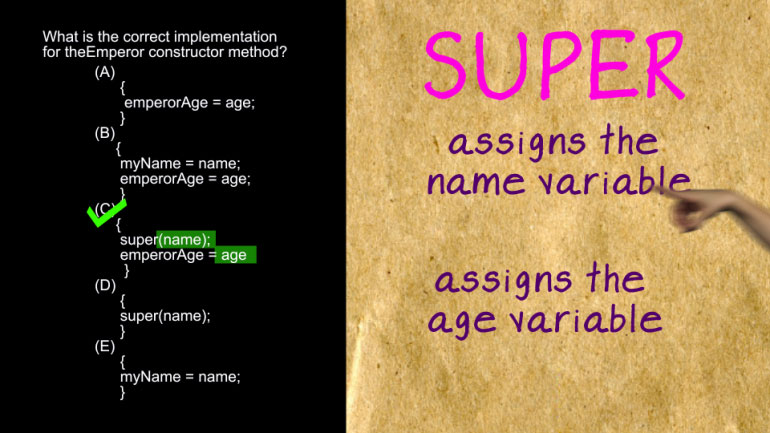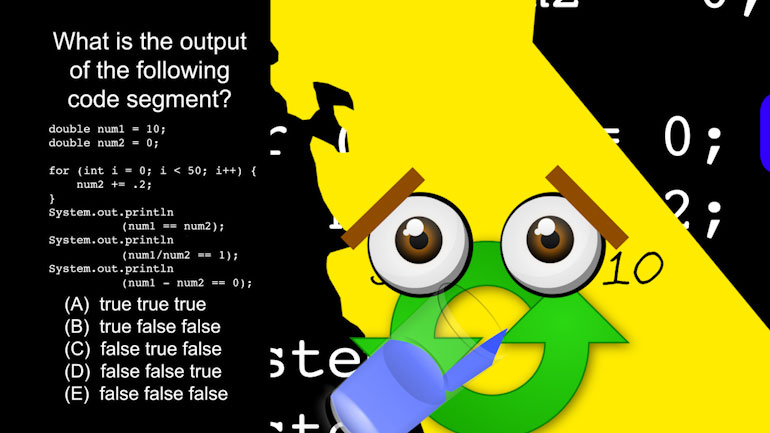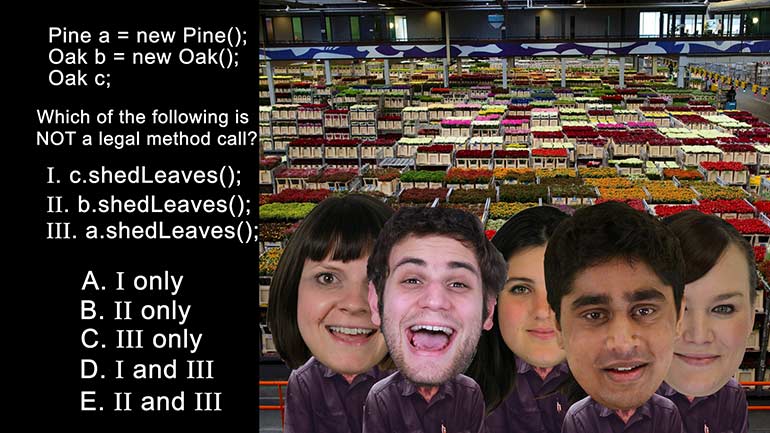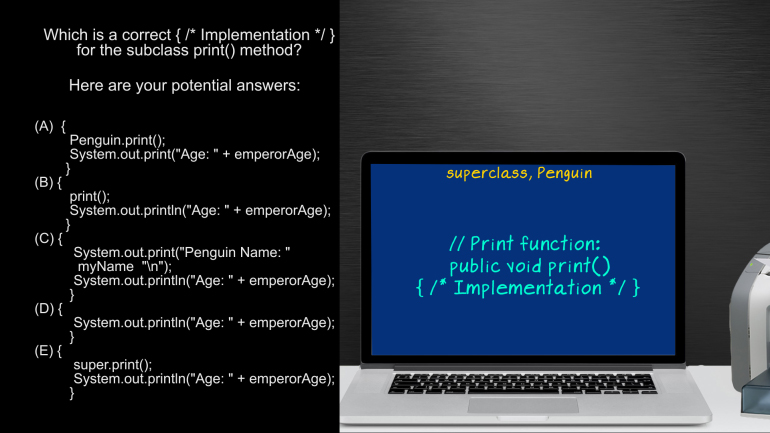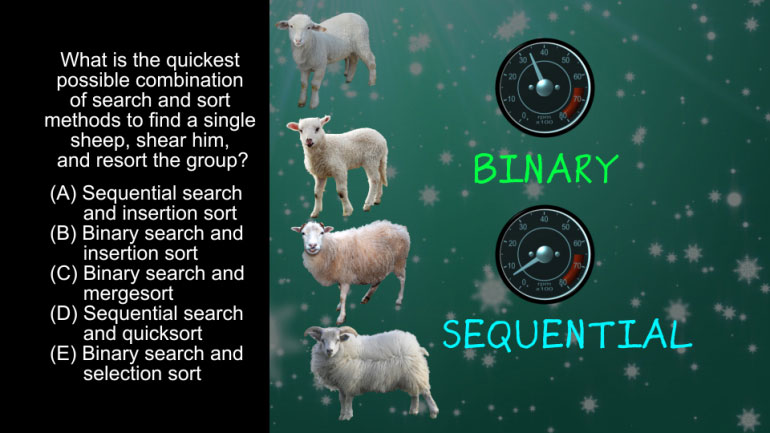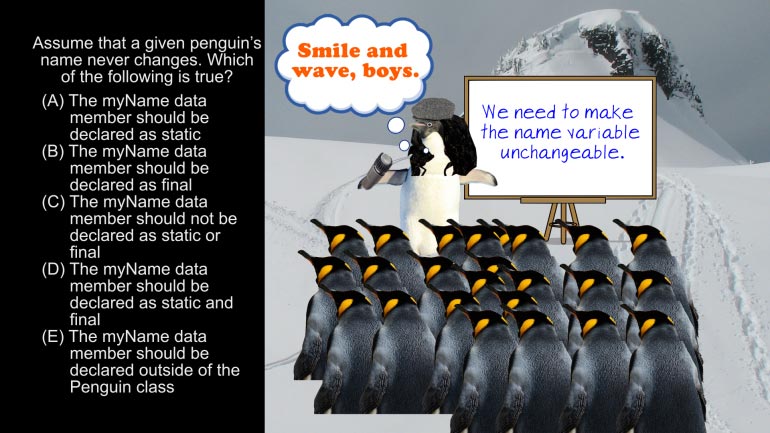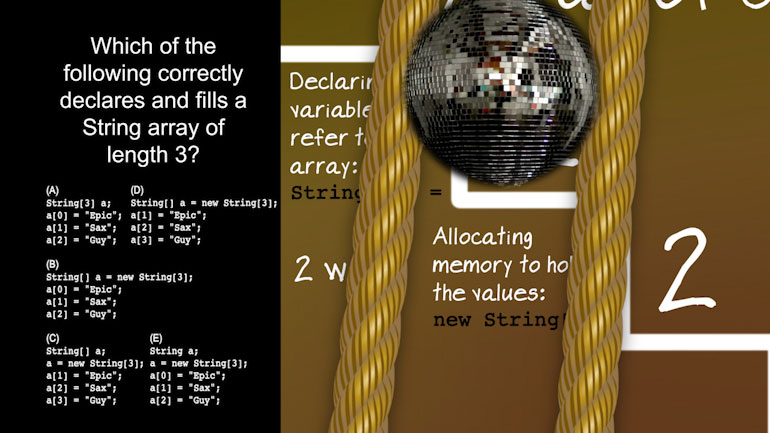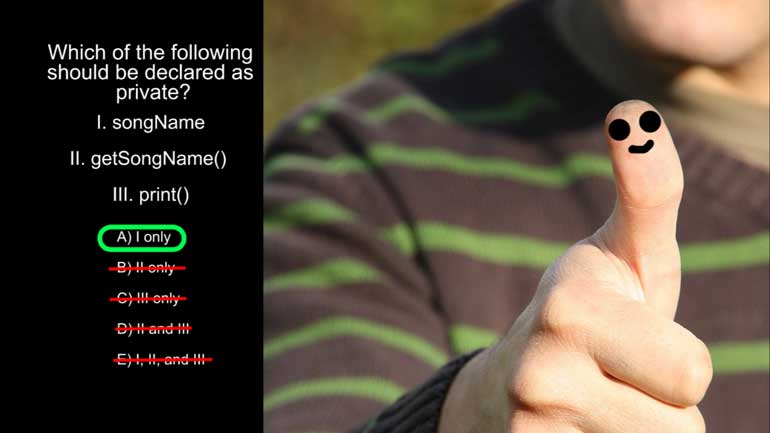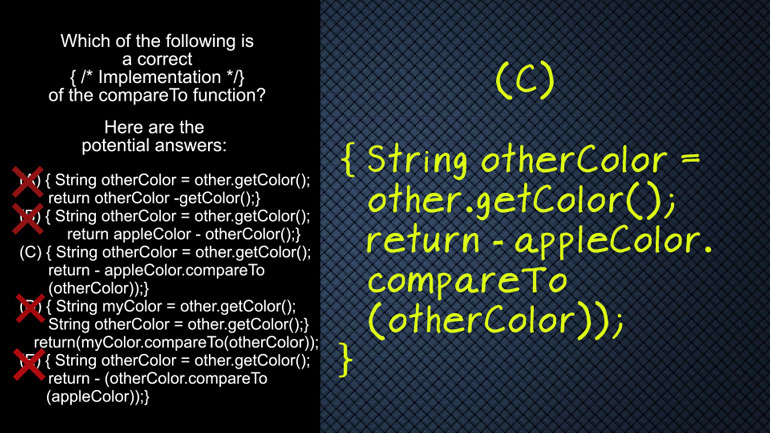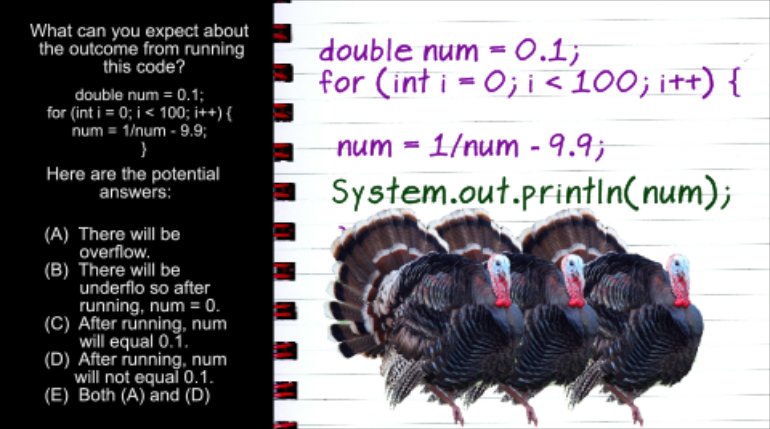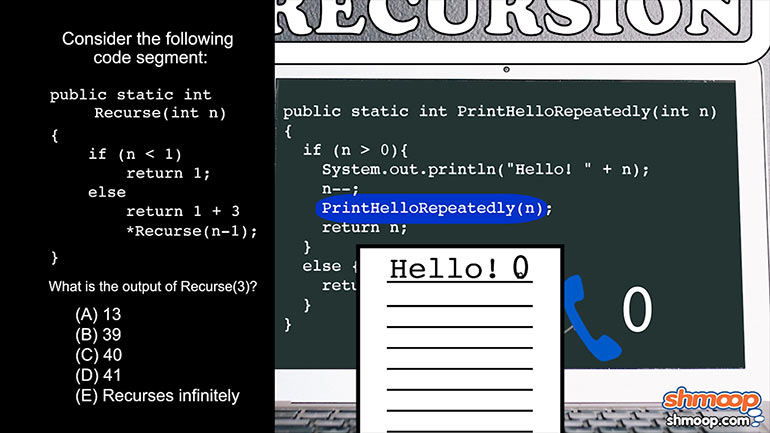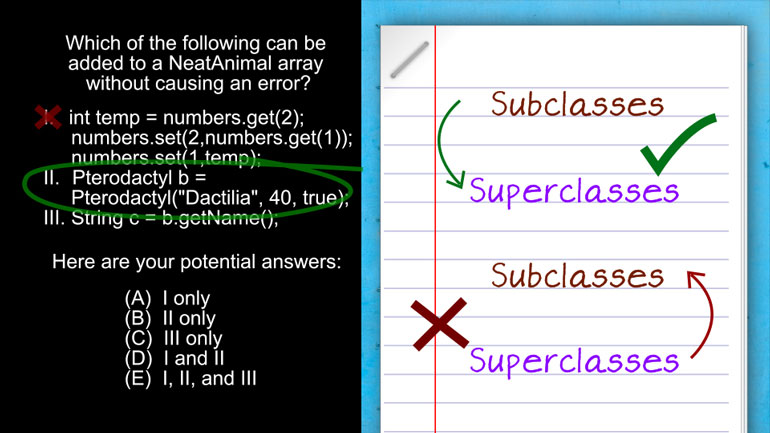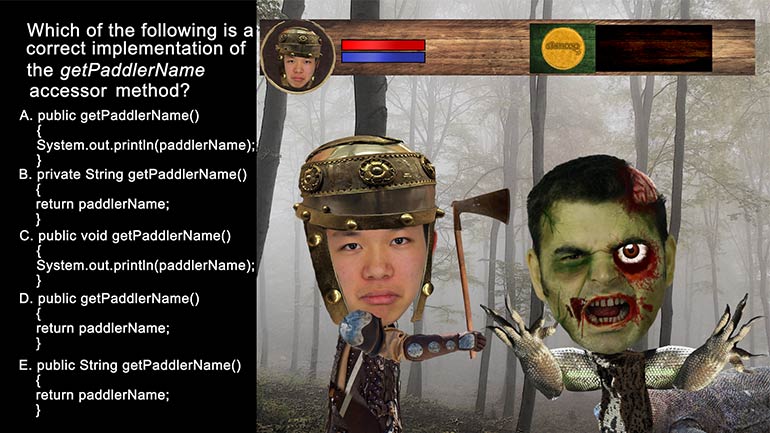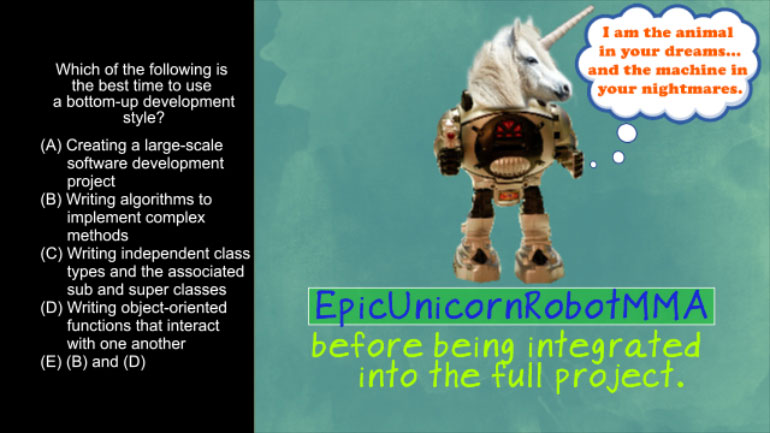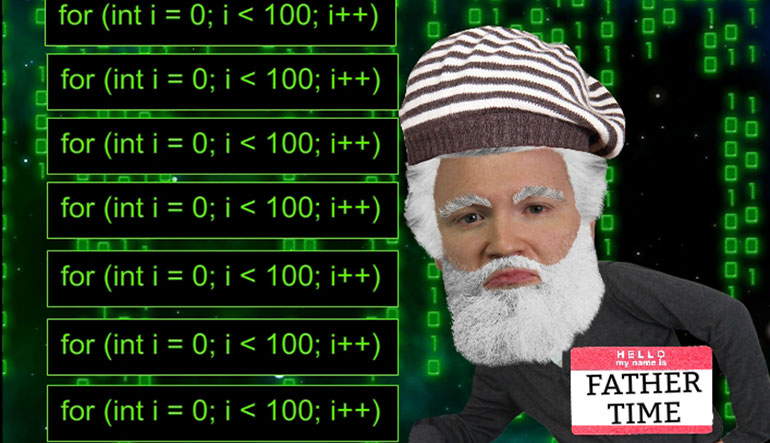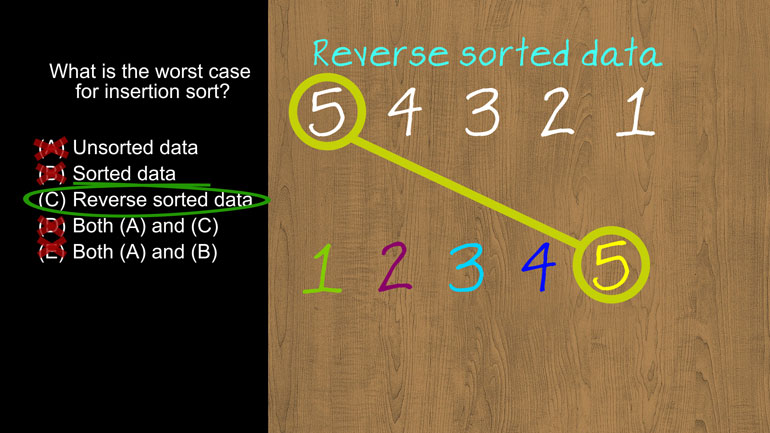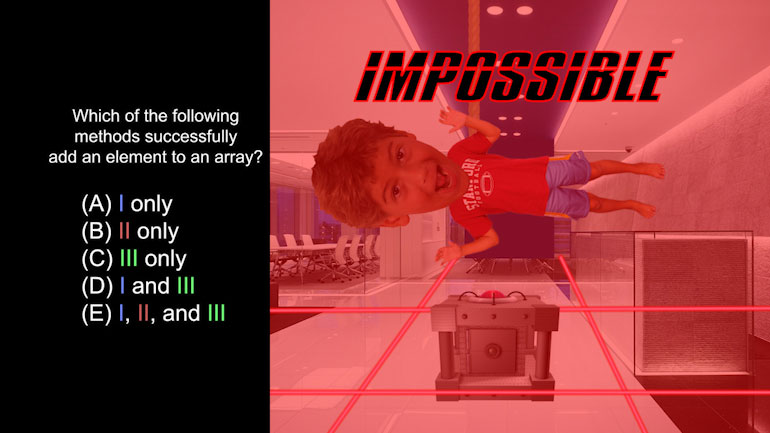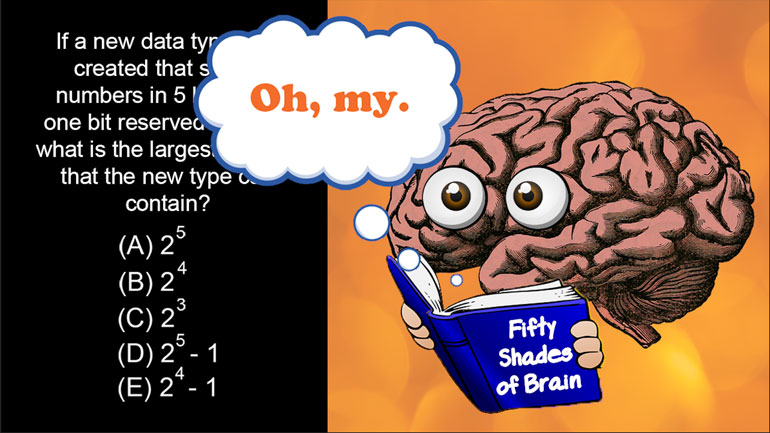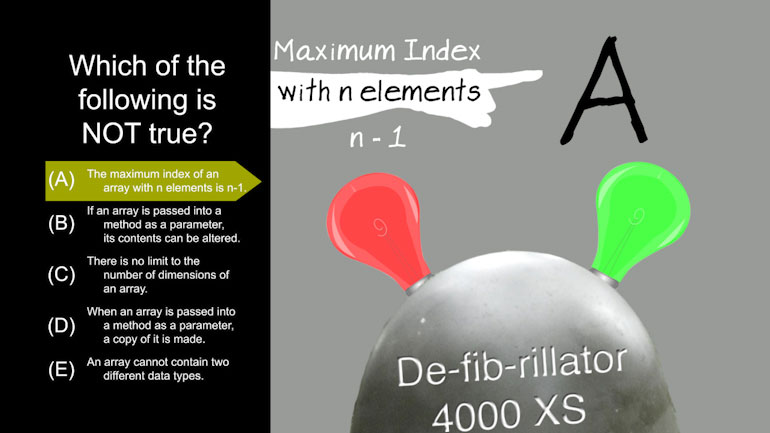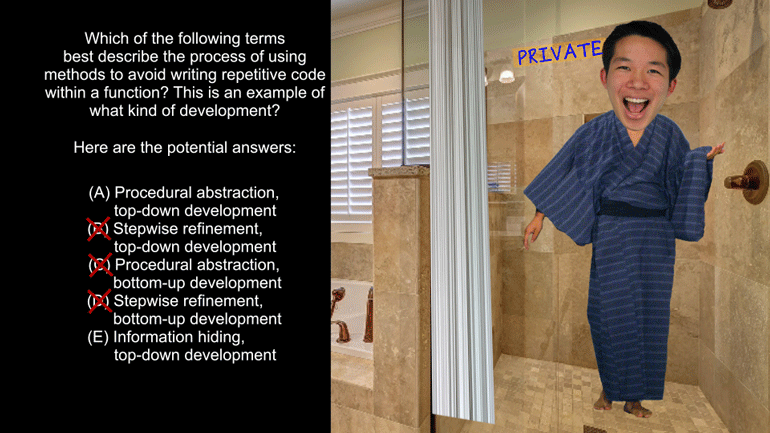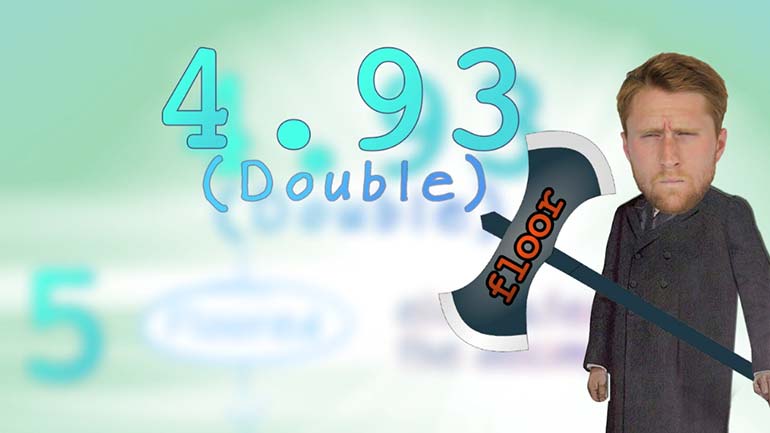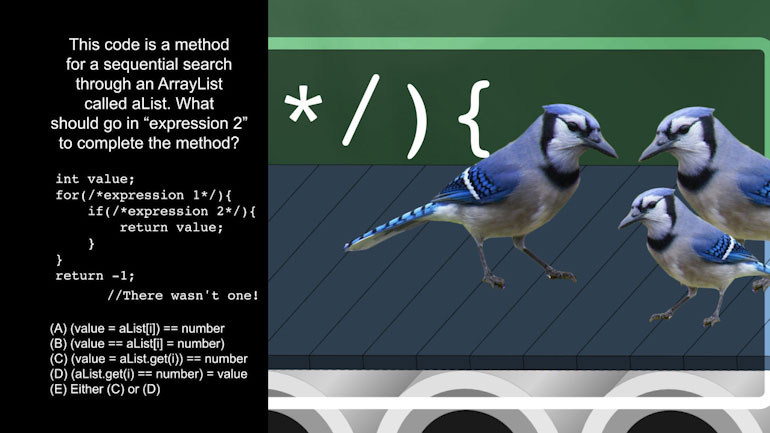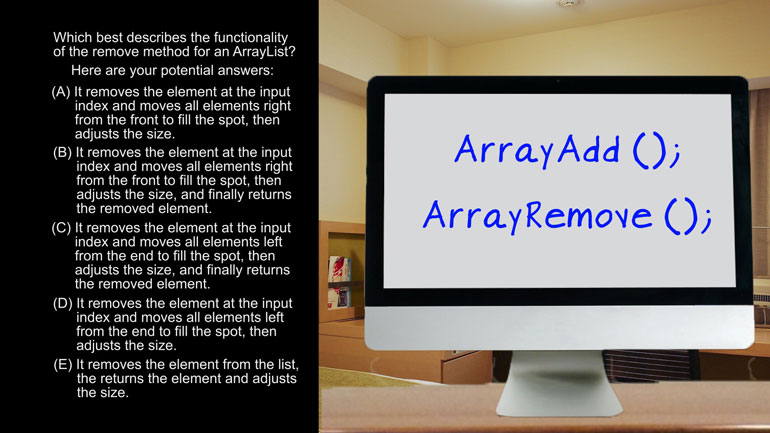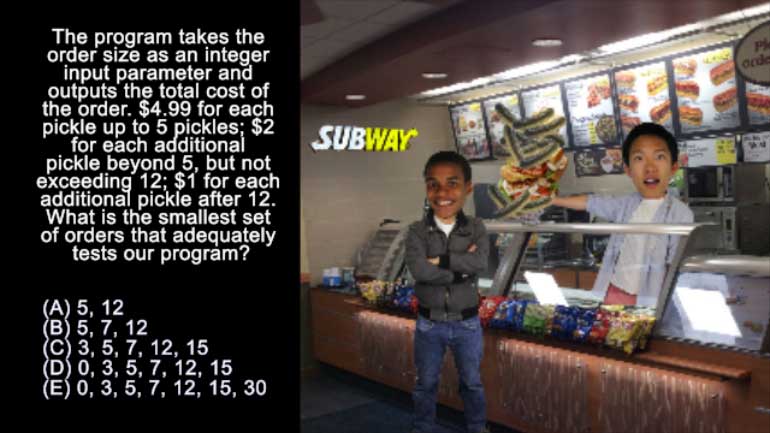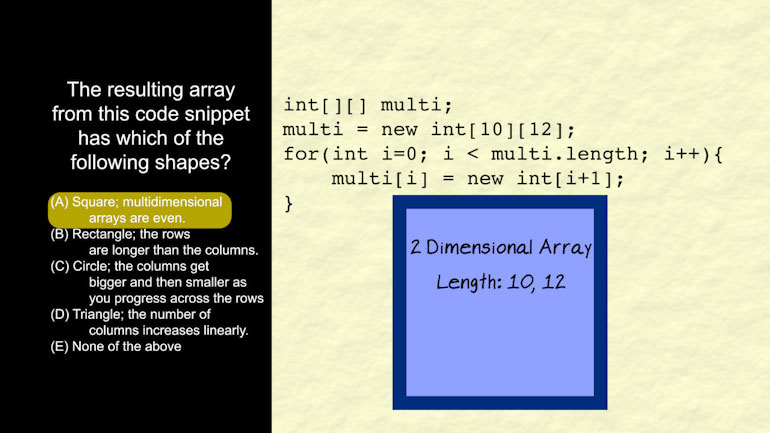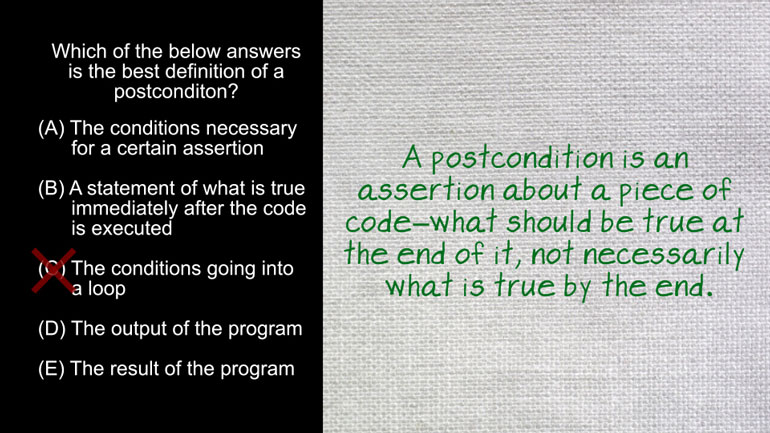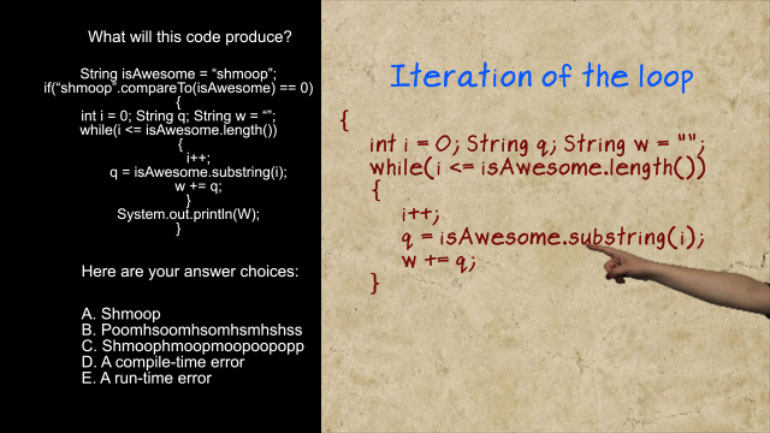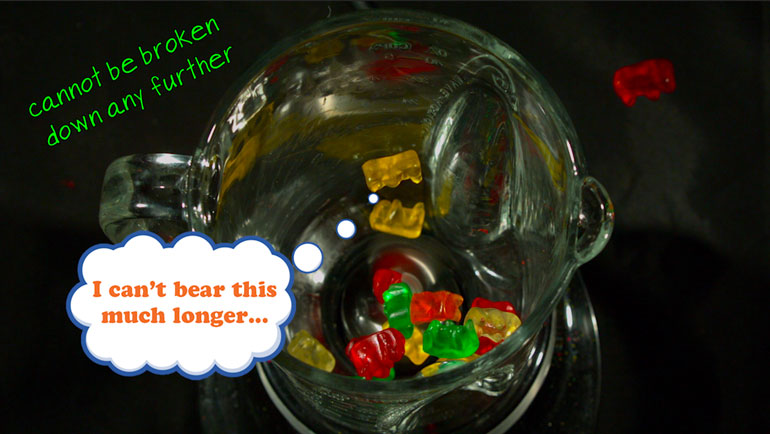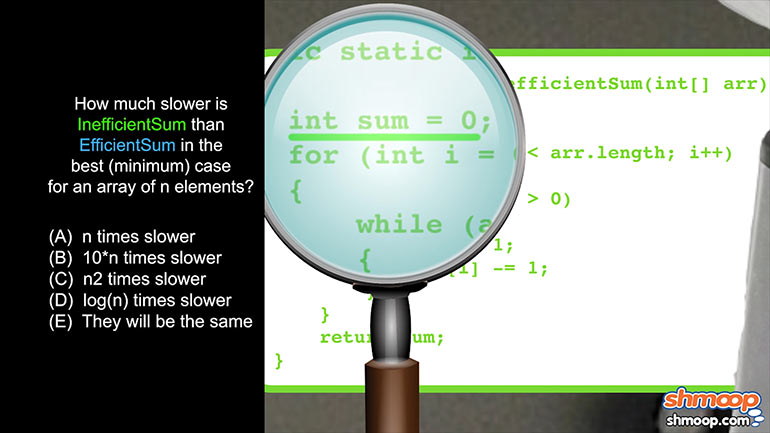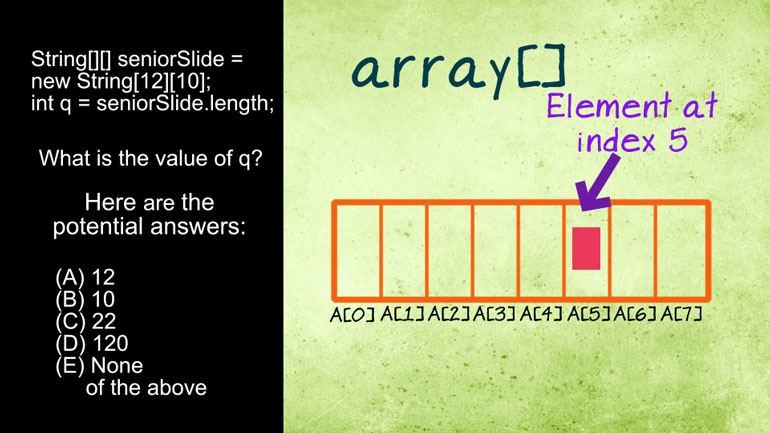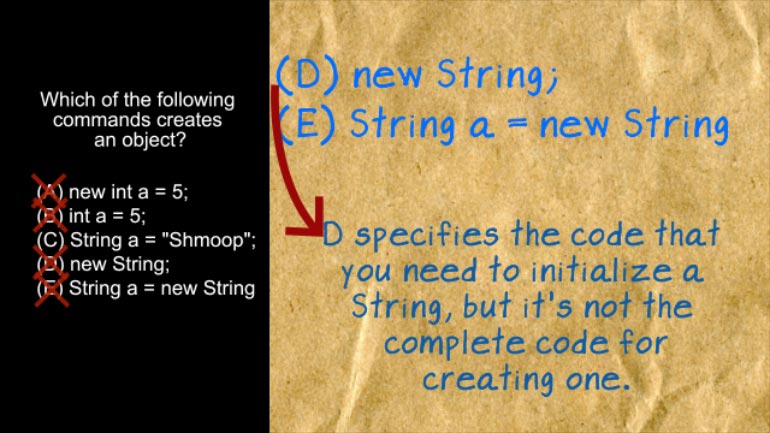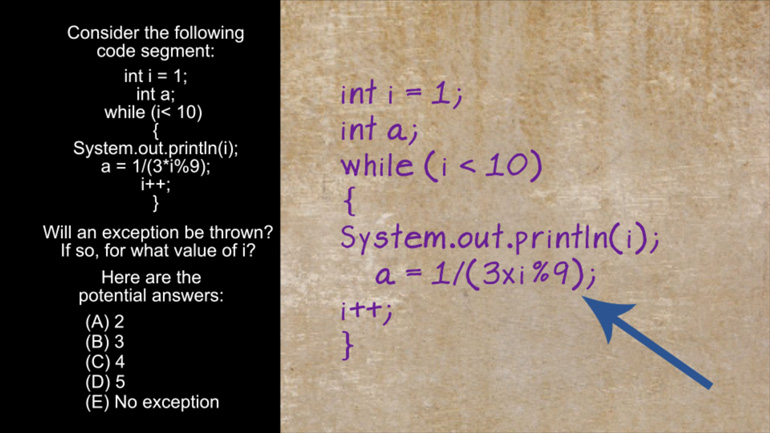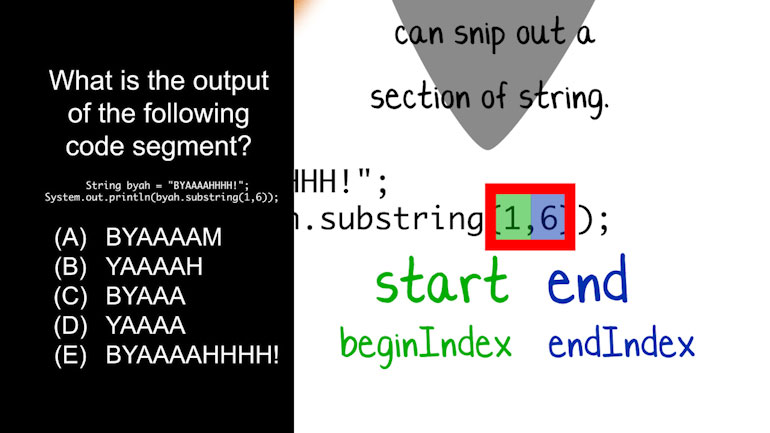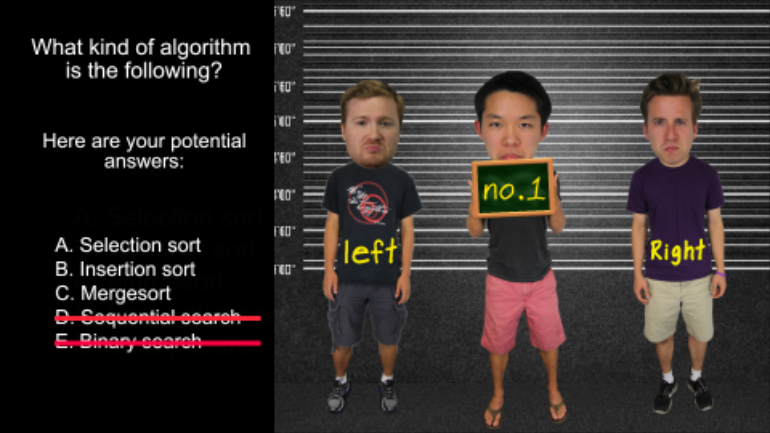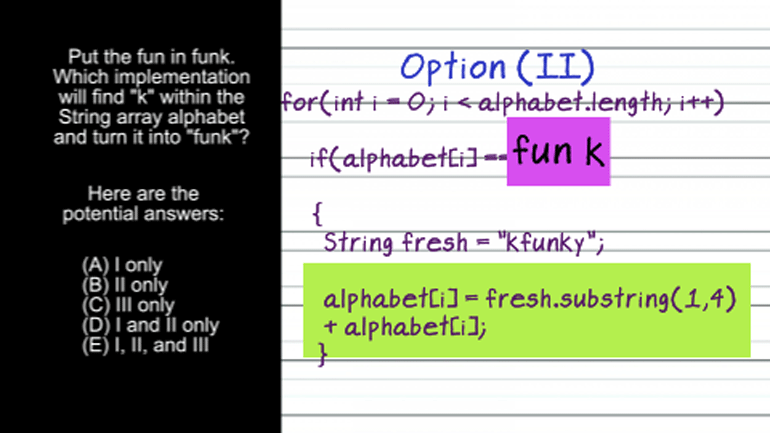ShmoopTube
Where Monty Python meets your 10th grade teacher.
Search Thousands of Shmoop Videos
Computer Science Videos 112 videos
Just as you move your furniture into a new house before spending the night, you’ve got to spend a little time setting up your environment when yo...
Doubles and ints. At first glance, it may look like this video will be about baseball and football statistics. But they're actually computer scienc...
AP Computer Science: Classes and Objects Drill 1, Problem 1. Which of the following is a correct {/* Implementation */} for the isInsect method?
AP Computer Science 2.1 Review of the Basics 230 Views
Share It!
Description:
APCS: Review of the Basics Drill 2, Problem 1. What is the output of the code segment?
Transcript
- 00:00
Thank you We sneak and here's your shmoop du jour
- 00:05
brought to you by a lack of case But that's
- 00:09
the least of your problems right now Okay what is
- 00:14
the output of the following code segment and hear the
- 00:17
potential answers came through All right oz waiver and let's
Full Transcript
- 00:24
roll Right Well to answer this bad boy we should
- 00:27
know the difference between print and print line statements Know
- 00:31
how to use relational operators and know what exactly is
- 00:35
returned when we knew so Operational operators are extremely useful
- 00:39
Incoming A variety of flavors for every situation way Use
- 00:42
them to determine if one piece of data is greater
- 00:45
than less than equal to or not equal to another
- 00:48
and return a true or false feather you depending on
- 00:50
the outcome But most of them are selfish Planter let's
- 00:53
Take a quick tour too Equal signs checks like two
- 00:57
operations are equal In other words you can use it
- 01:01
on strings in andrew's practically whatever an exclamation point and
- 01:06
an equal sign checks If two operandi are not evil
- 01:11
greater than and less than on there you go You've
- 01:13
already met can driven or equal to and less than
- 01:17
or equal tio r yet right here That's it All
- 01:20
right Well in the case of this question we've got
- 01:22
a couple of fairly simple mathematical statements To compare his
- 01:25
hundred twenty six less than three hundred fourteen months one
- 01:28
thousand three hundred thirty seven one part will the result
- 01:32
of a mod operation Thiss kind of mod operation is
- 01:36
the remainder after division that is one hundred five by
- 01:39
twenty six used three with the remainder of twenty two
- 01:43
So there's our value for the left side of the
- 01:46
comparison Three hundred fourteen minus two thousand three hundred seven
- 01:49
is your negative One thousand twenty three So bottom line
- 01:53
is twenty two less than negative one thousand twenty three
- 01:57
We'll not even close pal We're gonna get a false
- 02:00
shmoop That leaves us with c and d And the
- 02:04
difference between the two is a line break between rick
- 02:07
Cake is and false The code snap It has two
- 02:11
different types of prints taken The first is we print
- 02:14
which simply prints its contents to the console screen There
- 02:18
thie invisible cursor remains at the end of the statement
- 02:21
The second is a print line statement which prince its
- 02:23
contents then starts a new line Shocking it's Useful for
- 02:27
keeping an ongoing log advance to scroll through for example
- 02:31
All right So which is it security Since print line
- 02:34
starts the new line at the end of the statement
- 02:36
the new line won't begin until after false has been
- 02:40
printed He tried to trick us by suggesting that the
- 02:43
new line starts before the statement But we cannot be 00:02:46.913 --> [endTime] so easily fooled So we're going with me
Related Videos
AP Computer Science 1.2 GridWorld Case Study and APIs. What is the direction of the actor?
AP Computer Science 1.4 Standard Algorithms. How many times will mystery be called for mystery(n) for n > 1?
AP Computer Science 2.3 Classes and Objects. Which of the following is correct implementation of the Country class?
AP Computer Science 3.4 Inheritance, Abstraction, and Polymorphism. Which of the following will satisfy the conditional if statement for boo, str,...
AP Computer Science 4.2 Standard Algorithms. What kind of algorithm is the following?
